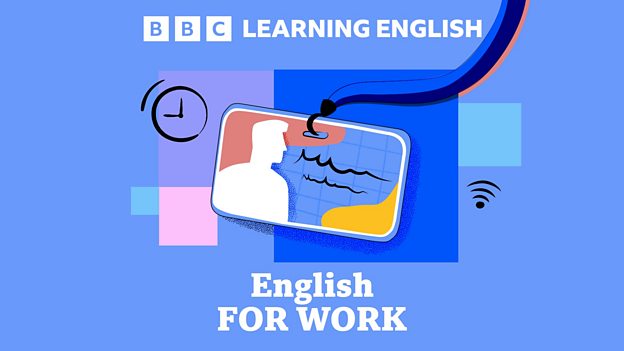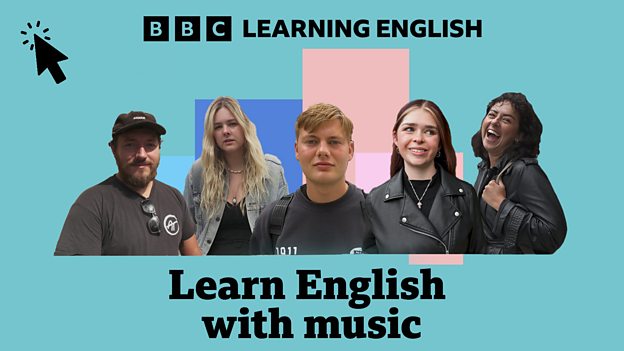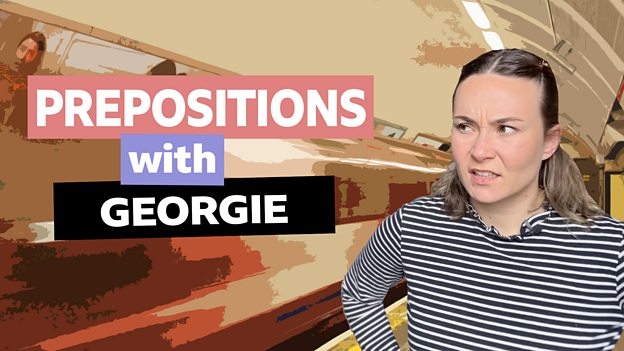6 Minute English
Intermediate level
Bitter food, better health?
Episode 240509 / 09 May 2024

____________________________________________________________________________
Learn more about food
____________________________________________________________________________
Introduction
Could bitter foods be better for your health? Beth and Phil discuss this and teach you some useful new vocabulary.
This week's question
How many different basic flavours can humans taste?
a) 4?
b) 5?
c) 6?
Listen to the programme to hear the answer.
Vocabulary
microbiome
the collection of microorganisms found in a specific part of the body
suppress
stop something from happening or operating
tastebuds
flavour receptors found on the tongue and in the mouth
undesirable trait
an unwanted negative characteristic
mainstream
something that the majority of people would use or like
a degree of
a small but significant amount of something
TRANSCRIPT
Note: This is not a word-for-word transcript.
Phil
Hello. This is 6 Minute English from BBC Learning English. I’m Phil.
Beth
And I’m Beth. Phil, I'm going to start this episode with grapefruit - I've got some here - do you want some?
Phil
Er, I'm not that keen on grapefruit - they're too bitter for me.
Beth
Oh, that's a shame, because this episode is all about bitter food. It has actually been linked to a number of health benefits. So maybe you should take my grapefruit.
Phil
I might not like it that much, but in this programme, we’ll be finding out how bitter foods can benefit our health. And, of course, we’ll be learning some useful new vocabulary.
Beth
That should give you a taste of what's coming up, but before that, if you want to learn vocabulary to talk about world events - search for our News Review podcast - we look at vocabulary about a major news story every week. But, back to this episode - I have a question for you, Phil. How many different basic flavours can humans taste? Is it:
a) 4?
b) 5? or,
c) 6?
Phil
Hmmm, I can think of bitter, sweet, salty and sour - so I'm going to go with four. I think we can taste 4 basic flavours.
Beth
OK, Phil, I’ll reveal the correct answer later. Leyla Kazim presents 'The Food Programme' on BBC Radio 4. Here she is talking about some of the possible benefits of bitter food.
Leyla Kazim
New research has found a remarkable link between bitter foods and our health. It seems they have an incredible ability to interact with our gut microbiome, suppress feelings of hunger, control glucose release and even counter chronic inflammation in the body. Could bitter be the answer at the tip of our tastebuds?
Beth
Bitter foods can interact with our gut microbiome. A microbiome is a collection of microorganisms that can be found in a particular part of the body. It includes fungi, bacteria and viruses. Microorganisms in our gut play an important role in the digestive process - they are our gut microbiome.
Phil
If we suppress something then we stop it from happening or operating. We heard that bitter foods can suppress hunger feelings. This means that they stop people feeling hungry. If we try to suppress a feeling, we are trying to stop it.
Beth
Leyla asks if bitter foods are the answer at the tip of our tastebuds. Normally we'd say that something that we can't quite remember is on tip of our tongue. Here we have tastebuds, which are the receptors on our tongue and inside our mouths that can detect flavours, like bitterness.
Phil
So, it seems that bitter foods could be very beneficial, but they are not always the easiest foods to love. In BBC Radio 4's 'The Food Programme', presenter Leyla Kazim spoke to chef Alexina Anatole, who points out that we might be consuming more bitter food than we realise:
Alexina Anatole
I think it's a real perception issue with it. I think people are exposed to bitters way more than they think they are, but there's this perception of bitter and negativity, both in terms of emotions and food, right? Bitterness is generally an undesirable trait, but there are so many very very mainstream bitter things.
Leyla Kazim
Such as?
Alexina Anatole
Chocolate, coffee, alcohol, any alcohol has a degree of bitterness to it.
Beth
Alexina says that many people see bitterness as an undesirable trait. A trait is a characteristic, so an undesirable trait is a characteristic that people don't want. We often see bitterness as a bad thing. We also often use undesirable traits to refer to negative aspects of people's personalities.
Phil
Alexina points out that there are a number of mainstream things that have a bitter flavour. If something is mainstream, then it means it's ordinary and part of what most people consume - she listed chocolate and coffee as mainstream things.
Beth
The other mainstream thing mentioned was alcohol - we heard that it has a degree of bitterness. If something has a degree of something, then it has at least a small, but noticeable amount of it.
Phil
OK, now I think it's time to hear to the answer to your question.
Beth
Right, I asked how many basic flavours humans can taste.
Phil
And I guessed it was four.
Beth
Which, unfortunately was not the right answer. The answer is in fact five. The flavour that you missed is umami, which comes from a Japanese word and refers to a savoury flavour often found in grilled meats or broths.
Phil
OK, let’s recap the vocabulary we’ve learned, starting with, microbiome, the collection of microorganisms found in a specific part of the body.
Beth
Suppress means prevent from operating or happening.
Phil
Tastebuds are the receptors found on in the tongue and in the mouth that sense flavours.
Beth
An undesirable trait is a negative characteristic that we don't want.
Phil
If something is mainstream, then it is something that most people would use. It's not unusual.
Beth
And finally, a degree of something is a small, but noticeable amount of something. Once again, our six minutes are up! Remember to join us again next time for more topical discussion and useful vocabulary, here at 6 Minute English. Goodbye for now!
Phil
Bye!
Latest 6 Minute English
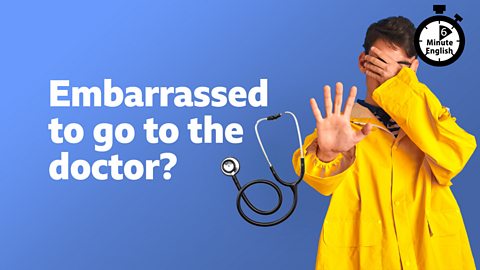
Embarrassed to go to the doctor?
Episode 241226 / 26 Dec 2024
Have you ever been embarrassed to go to the doctor?
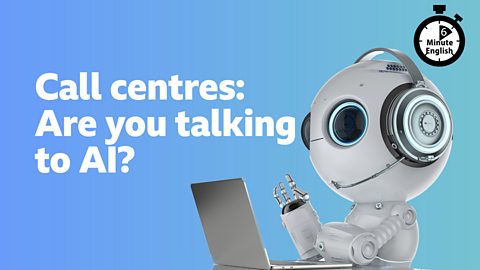
Call centres: Are you talking to AI?
Episode 241219 / 19 Dec 2024
Have you ever phoned up a company and had your call held in a queue? Could AI make this less painful?

Making 'mum friends'
Episode 241212 / 12 Dec 2024
Is making new ‘mum friends’ the positive experience it’s often described as?
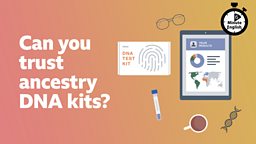
Can you trust ancestry DNA kits?
Episode 241205 / 05 Dec 2024
Are DNA ancestry tests a reliable way to trace your ancestry?
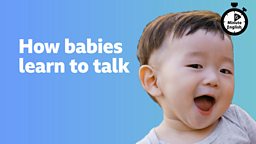
How babies learn to talk
Episode 241128 / 28 Nov 2024
What do babies need to learn to do to be able to talk?
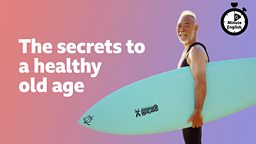

The bond between sisters
Episode 241114 / 14 Nov 2024
Are the stereotypes about older and younger sisters true?


Why you need a good night's sleep
Episode 241031 / 31 Oct 2024
Why is it so important to get a good night's sleep?

Divorce: Why does it happen?
Episode 241024 / 24 Oct 2024
How is divorce talked about in different countries?

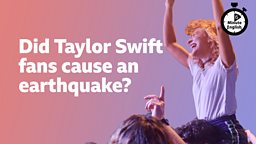
Did Taylor Swift fans cause an earthquake?
Episode 241010 / 10 Oct 2024
Did Taylor Swift move the Earth?

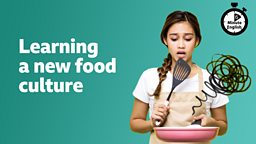
Learning a new food culture
Episode 240926 / 26 Sep 2024
Would you find it different to adapt to a new food culture?

Saving water in the driest place on Earth
Episode 240919 / 19 Sep 2024
How do farmers in the driest place on Earth manage to grow crops? With this solution!

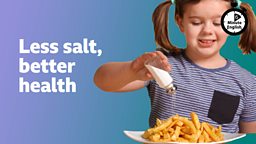
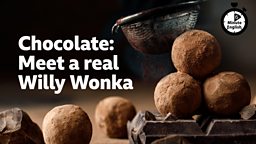
Chocolate: Meet a real Willy Wonka
Episode 240829 / 29 Aug 2024
Would you like to be a chocolate maker, like Roald Dahl's Willy Wonka?
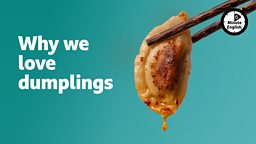
Why we love dumplings
Episode 240822 / 22 Aug 2024
Warning! This episode might make you very hungry...

Kids and climate change
Episode 240815 / 15 Aug 2024
What are young people's thoughts on climate change?


The science of falling in love
Episode 240801 / 01 Aug 2024
What's really happening in our brain when we fall in love?
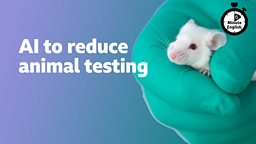
AI to reduce animal testing
Episode 240718 / 18 Jul 2024
Could AI reduce the need for animal testing?

Why read books, not screens?
Episode 240718 / 25 Jul 2024
Why is it better to read from a book than a screen?

The school that puts the kids in charge
Episode 240711 / 11 Jul 2024
What happens when you put the kids in charge of the school?

What can we learn from toddlers?
Episode 240704 / 04 Jul 2024
Learn to speak to yourself in the way that toddlers do!
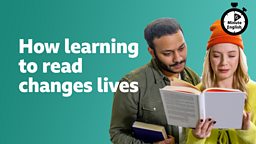
How learning to read changes lives
Episode 240627 / 27 Jun 2024
How can literacy change people's lives?

Building a better world with wood?
Episode 240620 / 20 Jun 2024
How can buildings made from wood help our mental health?

How names can tell painful stories
Episode 240613 / 13 Jun 2024
Could our name have painful baggage?

E-rickshaws driving away pollution
Episode 240606 / 06 Jun 2024
Could E-rickshaws give us cleaner air?



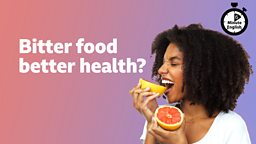
Bitter food, better health?
Episode 240509 / 09 May 2024
Could bitter foods be better for your health?
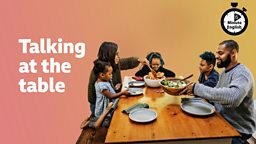






Disability in music and theatre
Episode 240321 / 21 Mar 2024
Learn about the people who are making it easier for disabled musicians and music fans to perform and see live music


Sewing to fight period poverty
Episode 240307 / 07 Mar 2024
Period poverty affects over 500 million people worldwide. How can a volunteer project help?
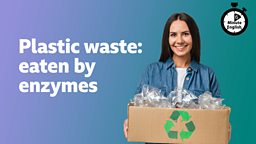
Plastic waste eaten by enzymes
Episode 240229 / 29 Feb 2024
Plastics can be difficult to recycle. Could a recently discovered enzyme help?
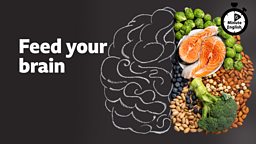
Feed your brain
Episode 240222 / 22 Feb 2024
Food is fuel for our brains. So, what should we be eating?
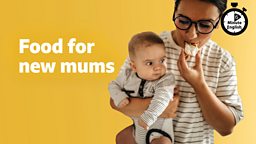
Food for new mums
Episode 240215 / 15 Feb 2024
Having a baby is exhausting! What do mothers need to eat after giving birth?
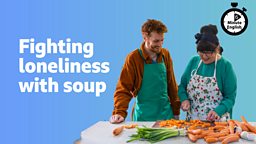
Fighting loneliness with soup
Episode 240208 / 08 Feb 2024
Hear how a project in the Netherlands is helping in the fight against loneliness

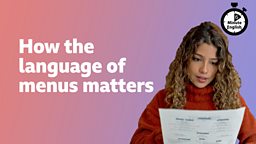
How the language of menus matters
Episode 240125 / 25 Jan 2024
Why is the language used on menus important?



